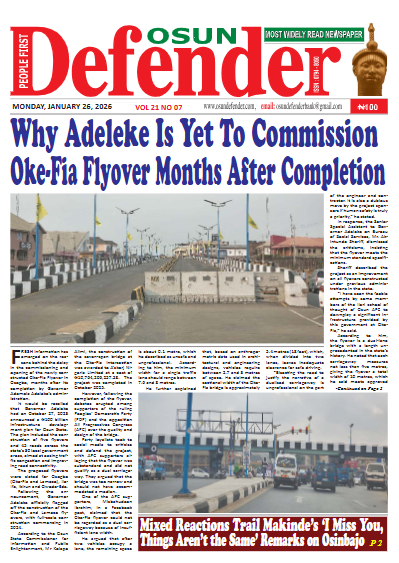Indonesia Tsunami: Death toll increases to 1649, thousands still missing

Rescuers picking through the grim aftermath of Indonesia’s quake-tsunami issued a fresh public health warning Saturday as more decaying corpses were unearthed from beneath the ruined city of Palu.
Officials said Saturday the death toll had climbed to 1,649 with more than a thousand maybe still missing in the seaside city on Sulawesi island, after the region was hit by a powerful quake and a wall of water.
Hopes of finding anyone alive a full eight days since the disaster have all but faded, though the search has not been officially called off.
Latest toll on Sulawesi’s quake-tsunami disaster
There are fears that vast numbers of decomposing bodies could still be buried beneath Petobo and Balaroa — two areas virtually wiped off the map.
“Most of the bodies we have found are not intact, and that poses a danger for the rescuers. We have to be very careful to avoid contamination,” Yusuf Latif, a spokesman for Indonesia’s search and rescue effort, told AFP from Palu.
“We have vaccinated our teams, but we need to be extra cautious.”
Security minister Wiranto, who like many Indonesians goes by one name, said eventually the worst-hit areas would have to be declared mass graves and left untouched.
“We have to make a decision as to when the search for the dead will end. Then, we later must decide when the area will be designated a mass grave,” he told reporters late Friday.
– ‘Just bodies’ –
At the massive Balaroa government housing complex, where the sheer force of the quake turned the earth temporarily to mush, soldiers wearing masks to ward off the stench of death clambered over the giant mounds of mud, brick and cement.
Hopes of finding anyone alive a full eight days since the disaster have all but faded
The troops peeking under collapsed walls and peeling back corrugated sheets did not have to look hard.
Sergeant Syafaruddin, from an army unit in Makassar south of Palu, asked for a body bag to be brought to a spot near where the remnants of an Islamic school now stands.
Two of his soldiers emerge from the ditch with the bag sagging in the middle but looking too light to be a corpse — they said they had found the heads of two adults and one child.
“There are no survivors here. We just find bodies, every day,” said Syafaruddin.
At the flattened Hotel Roa-Roa — where early optimism that survivors might be found faded as the days wore on — rescuers reviewed CCTV footage to get a sense of where the doomed guests could be buried.
– Short supplies –
Thousands of survivors continued to stream out of Palu to nearby cities in the aftermath of the disaster.
Hospitals remain overstretched and short on staff and supplies.
In Karawana village, nurse Iyong Lamatowa can offer little more than antibiotics and pain killers to treat those flocking to a makeshift clinic with badly-infected wounds.
Thousands of survivors continued to stream out of Palu to nearby cities in the aftermath of the disaster
Project HOPE, a medical NGO, said only two of its 82 staff in Palu had reported for duty since the quake.
“We still don’t know the fate of the clinic doctors, nurses and technicians who usually staff the clinic,” the organisation said in a statement.
A floating hospital run by the Indonesian navy and docked in Palu has already assisted with the delivery of four babies, local media reported.
Survivors have ransacked shops and supply trucks in the hunt for basic necessities, prompting security forces to round up dozens of suspected looters and warn that they will open fire on thieves.
Soldiers in face masks clambered over the giant mounds of mud, brick and cement in the search for quake victims
Hundreds of people Saturday rushed a truck carrying gas cylinders for cooking, with long and desperate queues quickly forming.
One supermarket that opened its doors refused to allow people inside, instead passing goods through the door as armed troops stood watch.
A convoy of five hundred trucks laden with donated food, cooking oil and other essentials was on its way to Palu, agriculture minister Amran Sulaiman said in the devastated city on Saturday.
“Palu’s ordeal is the grief for all of us and that’s why everyone is lending a hand to help,” he said.
– Aid trickles in –
The United Nations said Friday it was seeking $50.5 million “for immediate relief” to help victims of the devastating quake and tsunami in Indonesia.
After days of delays, international aid is slowly making its way to the disaster zone, where the UN says almost 200,000 people need humanitarian assistance.
Getting vital supplies to the affected areas has proved hugely challenging, with the number of flights able to land at Palu’s small airport still limited, leaving aid workers facing gruelling overland journeys.
Oxfam had sent water treatment units and purification kits to Palu and Swiss aid teams on the ground were providing drinking water and emergency shelter, both said in statements Saturday.
Indonesia sits along the world’s most tectonically active region, and its 260 million people are vulnerable to earthquakes, tsunamis and volcanic eruptions.
(AFP)








